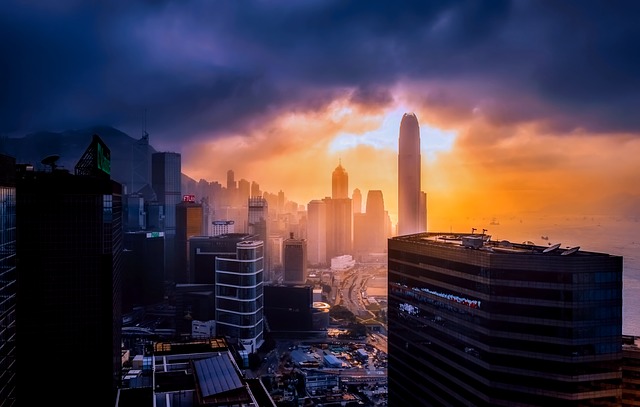
Earlier this month, an estimated 100,000 Hong Kong residents gathered in Victoria Park, to mark the 28th anniversary of China violent repression of pro-democracy protesters in Beijing’s Tiananmen Square. As the South China Morning Post noted, the event in Hong Kong was the only large-scale public commemoration of June 4, 1989, permitted on Chinese soil. And, to the attendees, the Hong Kong demonstration reflected growing frustration, not only with China’s leaders, but also with their own.
On the surface, little has changed since the United Kingdom returned Hong Kong to China 20 years ago. But, in reality, China now exercises near total control over Hong Kong’s management.
China no longer believes that local leaders can competently govern the Hong Kong ‘special administrative region,’ no matter how sympathetic they are to the Chinese Communist Party (CCP). China learned that lesson from the tenure of Tung Chee-hwa as Hong Kong’s chief executive from 1997 to 2005, and that of Leung Chun-ying from 2012 to 2017. Neither was able to earn the support of Hong Kong’s residents.
In Leung’s case, a first term riddled with crisis and scandal caused China to lose confidence in his ability to lead. In December 2016, three months before the 1,193-members Election Committee was to vote for a new chief executive, China told him not to stand for a second term. Despite being seen as a pro-China ‘hawk’ and a staunch supporter of the CCP, Leung was deemed unfit. Carrie Lam, a former chief secretary of the Hong Kong civil service, and at the time, Leung’s number two, was pushed into the candidacy.
Her election marked the second time since the handover from the British that a deputy replaced a CCP loyalist. The first time was when Tung, Hong Kong’s first chief executive, resigned midway through his second term, in favor of his second in command, Donald Tsang, after Tung’s unpopular policies and divisive personality provoked unprecedented mass demonstrations.
China originally assumed that Tung, a shipping tycoon educated in England who was well known among elites in Hong Kong and Western capitals, would be an ideal successor to the last British governor, Chris Patten. But Tung was a tone-deaf political leader. He chose to ignore the fact that Hong Kong was built by refugees from China, comfortable with British rule, and was always fidgety about China’s politics.
Tung (and later, his protégé, Leung) also misunderstood his mission. China’s leaders didn’t want another compliant ‘patriotic Chinese City’ on China’s soil. They had plenty of those already. They wanted to retain Hong Kong as a dynamic capitalist showcase—one that remained as politically quiescent as before the handover.
It is not clear who—Tung or Leung—was a more divisive leader. Both claimed, without providing evidence, that ‘hostile’ foreign forces, seeking to pry Hong Kong away from China, were behind the city’s many troubles.
Tsang’s administration was calmer, but his cozy relationships with real-estate tycoons resulted in an unusually restrictive zoning policy that exacerbated Hong Kong’s housing-price problem. He currently is on bail, appealing a conviction for accepting favors from a developer.
Hong Kong’s leadership vacuum has only widened the city’s political, economic, and generational fault lines. Today, many young people, feeling ignored by the China-friendly leadership, are openly discussing independence and self-rule, alarming the CCP.
Who can blame them? Sky-high property prices, the result of years of policy failures, have destroyed any chance for educated young people to buy homes. Meanwhile, many parts of the mainland have economically surpassed Hong Kong, which, in 1997, was China’s most advanced, modern city.
That inertia is clearly visible in Hong Kong’s economic statistics. For example, income inequality in 2016, as measured by the Gini coefficient, was the ninth worst in the world, only one notch better than Zambia. Mainland China, meanwhile, ranks in the middle of the pack, at 90th place.
Even when compared to Singapore—traditionally dismissed by Hong Kong residents as an excessively taxed authoritarian city-state, compared to their own low-tax laissez-faire economy—Hong Kong comes up short. The most recent World Economic Forum report lists Singapore as the world’s second-most competitive economy; Hong Kong ranks ninth. Moreover, in 2016, Singapore’s per capita GDP, measured by purchasing power parity, was $87,100, or about 50% higher than Hong Kong’s.
These numbers should serve as a warning to local leaders that their governance leaves much to be desired. Adding insult to injury, the 2017 UN World Happiness Report ranks Singapore 26th, while Hong Kong is 71st—not much higher than China, which was in 79th place.
Hong Kong remains important to China’s leaders, politically and economically. Hong Kong is a world-class financial hub, and the Hong Kong dollar is the only convertible Chinese currency, making the city indispensable to China’s capital needs. Hong Kong is also the first stop for capital flight by China’s elite families and corrupt officials.
China’s rulers must learn from the departed British: pay attention to the views of the ruled—not just loyalists on the political payroll. If China and its local proxies continue to ignore what protesters are really shouting about, incompetent loyalists at the helm will be the least of their worries.

